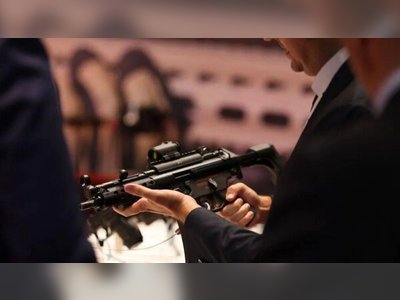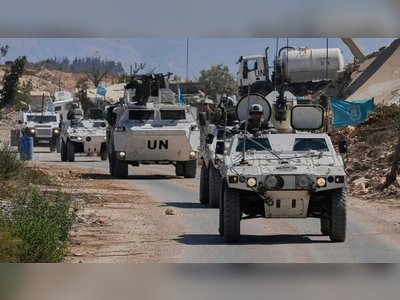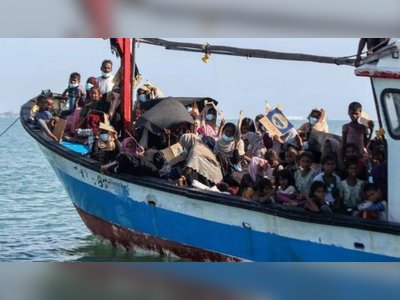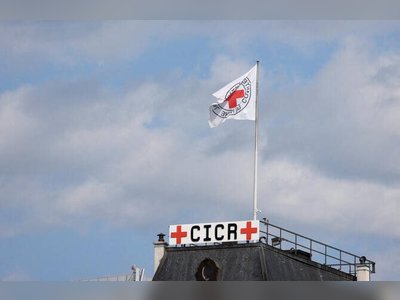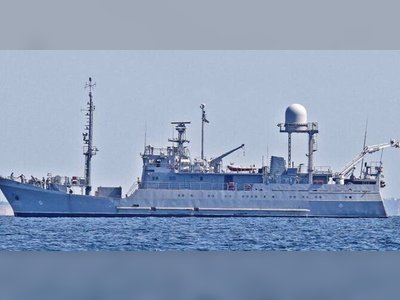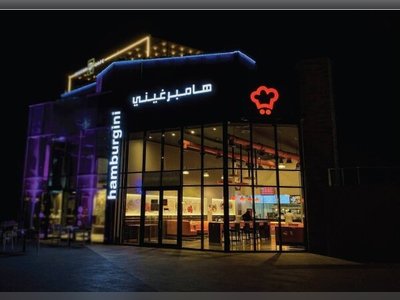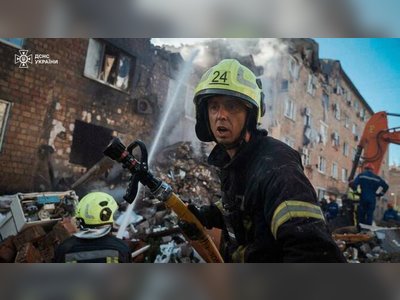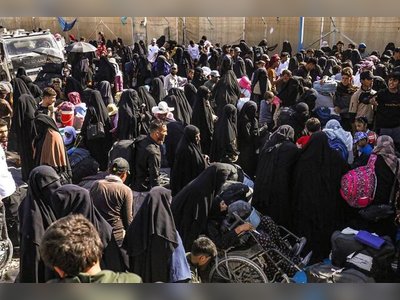
Sudanese City Faces Intensifying Paramilitary Assault Amid Famine Threat
El-Fasher residents endure relentless bombardment as aid access dwindles and hunger grips the besieged city.
In El-Fasher, a city in Sudan's western Darfur region that remains under the control of the army, a severe humanitarian crisis has unfolded amidst escalating conflict with the paramilitary Rapid Support Forces (RSF).
The RSF, which has been at odds with the regular army since April 2023, launched its most vigorous assault yet on El-Fasher in a bid to expand their territorial control.
This assault has led to a significant intensification of hostilities, impacting civilians severely.
Reports from various sources indicate that the city and its surrounding areas have experienced relentless artillery fire, drone strikes, and ground incursions by the RSF in recent weeks.
The United Nations (UN) describes El-Fasher, which hosts approximately 300,000 people, as an 'epicenter of child suffering' due to the dire circumstances faced by its inhabitants.
Those who are able to escape the city report that the journey out is fraught with death, highlighting the deteriorating conditions.
The humanitarian situation within El-Fisher has become increasingly grim, marked by a severe lack of basic necessities such as clean water and medicine.
According to accounts from residents and humanitarian workers, diseases have spread rapidly due to unsanitary conditions and the unavailability of healthcare services, particularly affecting those wounded by shrapnel or gunfire.
The city is effectively cut off from aid and trade, with no viable means for its residents to escape the siege.
The constant bombardment and restricted communication severely limit the flow of information, making it challenging to document life within El-Fasher.
Consequently, visuals depicting the severity of the situation are scarce, and the act of filming certain areas puts individuals at risk of attacks.
Despite these challenges, rare footage obtained by media outlets sheds light on the dire living conditions within the city.
The images depict children in a communal kitchen, their expressions indicative of severe malnutrition, as they gather around a limited supply of food.
Families are observed waiting silently for sustenance, amidst the constant threat posed by mortar fire and gunfire.
The RSF's campaign has also targeted the airport, certain neighborhoods, and the nearby Abu Shouk displacement camp, which is now largely under their control.
These actions have exacerbated the humanitarian crisis, leading to fears of further displacement as El-Fisher becomes a focal point for those fleeing conflict in other areas.
The situation within El-Fisher has reached critical levels, with nearly 40 percent of children under five suffering from acute or severe malnutrition, according to UN estimates.
Community leaders report that at least five children die daily in the Abu Shouk camp alone.
The loss of the capital Khartoum to the army earlier this year prompted the RSF to shift its focus westward, aiming to establish a separate administration and risking the fragmentation of Sudan's territory.
Efforts to address the situation remain hampered by ongoing conflict and limited access.
Despite these challenges, calls for intervention to save lives within El-Fisher grow more urgent as the city faces severe shortages of food, water, and medical aid.
The RSF, which has been at odds with the regular army since April 2023, launched its most vigorous assault yet on El-Fasher in a bid to expand their territorial control.
This assault has led to a significant intensification of hostilities, impacting civilians severely.
Reports from various sources indicate that the city and its surrounding areas have experienced relentless artillery fire, drone strikes, and ground incursions by the RSF in recent weeks.
The United Nations (UN) describes El-Fasher, which hosts approximately 300,000 people, as an 'epicenter of child suffering' due to the dire circumstances faced by its inhabitants.
Those who are able to escape the city report that the journey out is fraught with death, highlighting the deteriorating conditions.
The humanitarian situation within El-Fisher has become increasingly grim, marked by a severe lack of basic necessities such as clean water and medicine.
According to accounts from residents and humanitarian workers, diseases have spread rapidly due to unsanitary conditions and the unavailability of healthcare services, particularly affecting those wounded by shrapnel or gunfire.
The city is effectively cut off from aid and trade, with no viable means for its residents to escape the siege.
The constant bombardment and restricted communication severely limit the flow of information, making it challenging to document life within El-Fasher.
Consequently, visuals depicting the severity of the situation are scarce, and the act of filming certain areas puts individuals at risk of attacks.
Despite these challenges, rare footage obtained by media outlets sheds light on the dire living conditions within the city.
The images depict children in a communal kitchen, their expressions indicative of severe malnutrition, as they gather around a limited supply of food.
Families are observed waiting silently for sustenance, amidst the constant threat posed by mortar fire and gunfire.
The RSF's campaign has also targeted the airport, certain neighborhoods, and the nearby Abu Shouk displacement camp, which is now largely under their control.
These actions have exacerbated the humanitarian crisis, leading to fears of further displacement as El-Fisher becomes a focal point for those fleeing conflict in other areas.
The situation within El-Fisher has reached critical levels, with nearly 40 percent of children under five suffering from acute or severe malnutrition, according to UN estimates.
Community leaders report that at least five children die daily in the Abu Shouk camp alone.
The loss of the capital Khartoum to the army earlier this year prompted the RSF to shift its focus westward, aiming to establish a separate administration and risking the fragmentation of Sudan's territory.
Efforts to address the situation remain hampered by ongoing conflict and limited access.
Despite these challenges, calls for intervention to save lives within El-Fisher grow more urgent as the city faces severe shortages of food, water, and medical aid.
